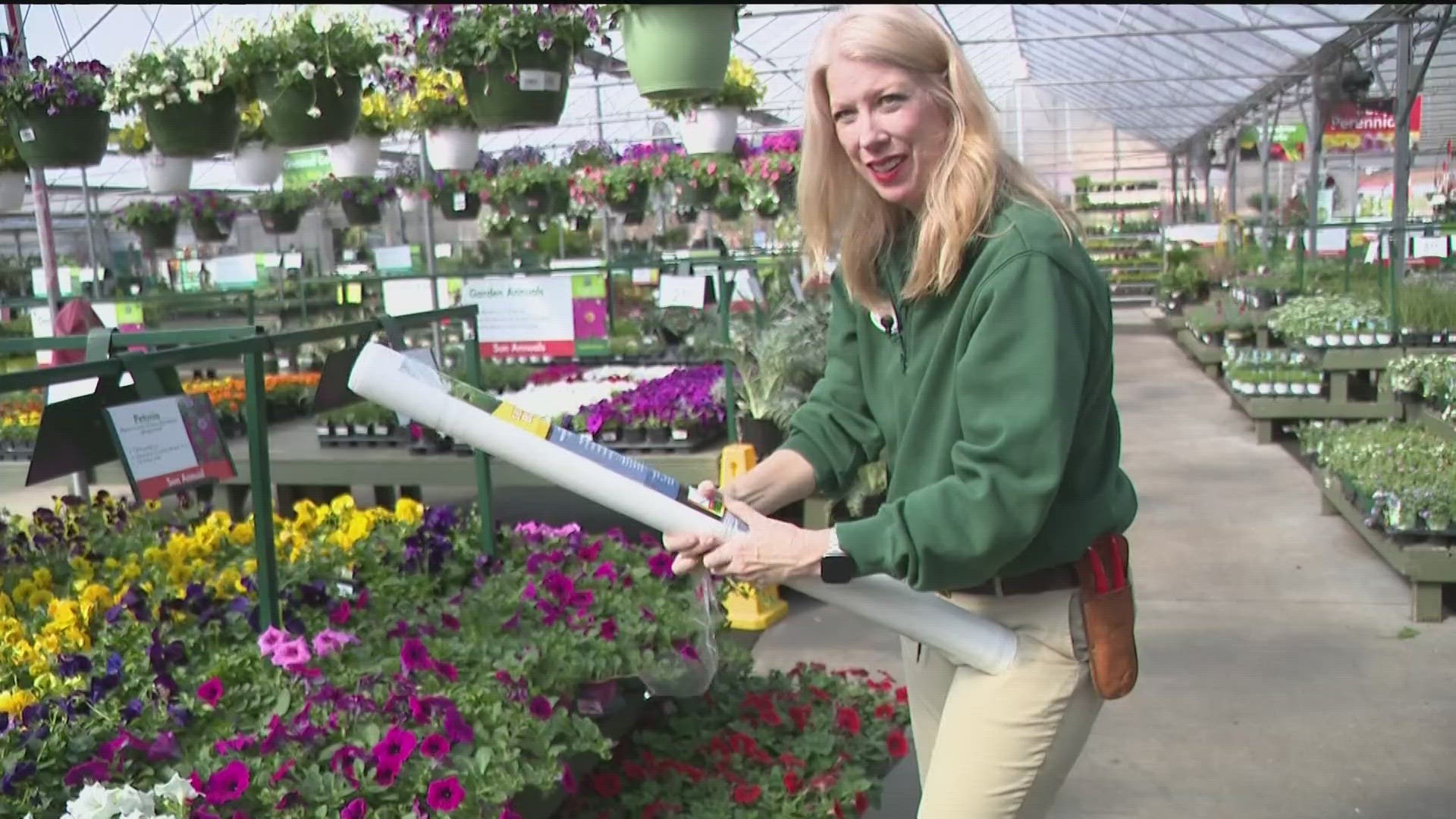ATLANTA — We have now 'sprung forward,' and many early-season flowering trees and flowers are in bloom. However, the prevalence of flowering flora does not mean that we are done with cold weather altogether.
Last week, the National Weather Service in Peachtree City turned on the metro's 'growing season.' Due to the streak of warm weather in February and early March, many flowering species are in bloom a little earlier than normal. This means that when frost and freeze threaten the area, Frost Advisories and Freeze Warnings will be issued. In fact, on Monday night, parts of north Georgia will be under a Frost Advisory.
How many more weeks could we still see the threat of near-freezing temperatures?
The not-so-simple answer is that it is different every year. In some years, our last freeze in the city will be as early as February. Other years, it can be as late as April. Weather patterns and the prevalence or lack of cold air outbreaks drive each season's spring temperatures.
But you may find it interesting to hear that Atlanta's growing season has been growing itself over the last several decades. Our average last freeze is getting earlier.
At the turn of the century, Atlanta's average last freeze was on March 23, based on climatology data from 1971-2000.
Fast-forward two decades, in our newest 'climate normals,' our average last freeze is March 15. That's eight days earlier, just over two decades.
Dr. Pam Knox, an Agricultural Climatologist with the University of Georgia, said this is due to 3 main factors:
"One is the urbanization of Atlanta and the suburbs. You look around, and you can see there are all kinds of development. Trees are being cut down. A lot of pavement is going in. And all of those things increase the heating locally."
Atlanta's population continues to grow. In 1990, the Metro Atlanta area was home to 2.1 million people. According to the U.S. Census Bureau, by 2020, the population had grown to more than 6 million.
The drastic change in Atlanta's skyline—the building of more high-rises in the concrete jungle, more roads, and a lower ratio of parks and green spaces—all fuel the urban heat island effect. The buildings, concrete, and asphalt re-emit heat overnight, keeping lows in the center of the city much warmer than outlying suburban and rural areas.
Dr. Knox also said that since the start of the Clean Air Act in the 1970s, there has been far less pollution and soot in the air. More sunshine has made its way to the surface, helping us warm.
The third aspect of our earlier freeze is due to our planet's warming.
"We are seeing a lot of warming here in the Southeast, especially in the winter. But really, all seasons are warming up."
Even our coldest days are getting less cold, on average. Every decade, the USDA updates the Plant Hardiness Zone Map, "the standard by which gardeners and growers can determine which perennial plants are most likely to thrive at a location," according to their website. The metro area, on average, moved up by half a category. Atlanta is now in Zone 8a.
So when is it safe to plant?
In Atlanta, we typically suggest waiting until Tax Day, or April 15th, before planting less cold-hardy blooms. In the North Georgia mountains, that last freeze can be many weeks later.
Looking ahead, there are some signs that we could see a cooler trend later this month. The latest eight to 14-day temperature outlook from the Climate Prediction Center shows this.
What should you plant now?
Kara Ziegler, Regional Manager with Pike Nurseries, said now is the perfect time to plant annual flowers that can still tolerate near-freezing temperatures.
"Pansy season is almost over. They do well in the cold, but when temperatures start getting up to 60 or 65, they start to wilt a little," she explained. "Now's the time to start replacing those pansies with things that can tolerate a little bit cooler of a season and give you some nice spring color in the coming months."
Specifically, she recommends dahlias, marigolds, and gerbera daisies.
If you have planted warmer-season annuals like petunias, there are some ways to protect those less cold-hardy varieties on colder nights.
"A frost cloth can protect those tender flowers when we get down to freeze territory. You just cover up the flowers and tuck them in like you would a sheet, and this will trap the heat in," said Zielger, adding that you can also use a bedsheet to do the same.
And it's also a great time to start up your vegetable garden.
"Lettuce and Cabbage are great right now," Ziegler said. "They like cool nights, so they thrive in this weather. Broccoli is also another good one. It will be ready to harvest just in time to plant your peppers later this spring"
Ziegler also added that this can be the perfect time to add cilantro and rosemary to your garden. Rosemary is not only cold-hardy but also gives off a fragrant smell that bugs do not like. So, it can protect your vegetable garden as temperatures warm up and the bugs come out this spring and summer.

